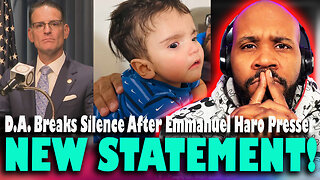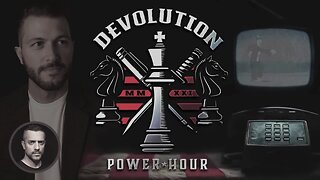Premium Only Content

Claims Commandments
Claims Commandment XI
Thou Shall Empathize With the Claimant
Everyone in a claim situation is unhappy, disturbed, shocked, injured either in body or emotionally and needs help. The adjuster must recognize the difference between sympathy and empathy.
Empathy is identification with and understanding of another’s situation, feelings, and motives. It is the ability to understand another person’s circumstances, point of view, thoughts, and feelings.
Sympathy, on the other hand, is the sharing of another’s emotions, especially of sorrow or anguish and includes pity and compassion. It is the fact or power of sharing the feelings of another, especially in sorrow or trouble. Sympathy must be limited to the needs of relatives or clergy, not a professional relationship.
The adjuster should avoid sympathy and work to convince the insured or claimant that the adjuster empathizes with the claimant’s situation. Empathy can be shown if the adjuster can honestly express one or more of the following similarities between the adjuster and the claimant and simultaneously establish rapport:
They have similarities in their families;
They practice the same religious denomination;
They were also wounded in the war while serving in the US Military;
They have children of the same age;
They belong to the same club;
They engage in the same hobby;
They are fans of the same sports team, or
They have some interest in common.
When the claimant believes that the adjuster empathizes with the problems of the claimant or the insured the two will work together as a team to resolve the claim. With empathy, the adjuster can provide the service promised by the terms and conditions of the insurance policy.
The adjuster is the living embodiment of the insurance company. He or she is the person the insured meets when the insured faces a loss and needs help. It is the adjuster, and the help he or she gives the insured, which is the person who fulfills the promise made by the insurer when the policy was issued.
Without this service insurance becomes meaningless. The adjuster is the foundation upon which an insurer is built. If the adjuster is not professional and does not provide the service promised by the insurer, the promise made by the policy is broken and the insurer will first lose customers and ultimately fail. Claims that are owed must be paid promptly and with good grace. To do otherwise would be to ignore the purpose for which insurance exists: to provide service, protection, and security to the insureds.
The property adjuster has a duty to:
help the insured prove the loss to the insurer;
help the insured understand the terms and conditions of the policy;
investigate thoroughly to determine the cause and origin of the loss;
determine that the facts establishing the cause and origin of the loss is due to a peril insured against and not excluded; and
conduct a thorough investigation to determine if a third person is responsible for the loss so that subrogation can be instituted to recover, in addition to the money paid by the insurer, the deductible or other non-covered portions of the loss.
The liability adjuster represents the insurer and deals directly with the insured. When a claim is made, the insurer provides an adjuster to help the insured understand the policy and comply with its conditions.
The role of the liability adjuster is slightly different to that of the property adjuster. The liability insurance adjuster has the following duties:
to the insured, to protect him or her against exposure to liability to third parties as a result of an accidental tort that falls within the definition of “occurrence”;
to the claimant, to treat him or her fairly and, if liability exists, to resolve the claim promptly without ignoring the duty to the insured;
to the insurer, before agreeing to resolve a claim, to establish that coverage exists for the loss under the terms and conditions of the policy, that the insured is liable to the third party, and the most reasonable resolution of the claim has been achieved.
Investigate thoroughly the claim made against the insured.
Empathize with the insured's situation as a person facing a claim or a lawsuit.
If the insured is liable to a third party evaluate the injuries and set the value of the claim.
Negotiate a settlement with the third party or his or her counsel.
Obtain counsel to defend the insured to the suit against him, her or it.
Help counsel with additional investigation required.
Set reserves and report in detail to claims management.
Insurance Claims Professionals must be people who:
Can read and understand the insurance policies issued by the insurer.
Understand the promises made by the policy and their obligation, as an insurer’s claims staff, to fulfill the promises made.
Are all competent investigators.
Have empathy and recognize the difference between empathy and sympathy.
Understand medicine relating to traumatic injuries and are sufficiently versed in tort law to deal with lawyers as equals.
Understand how to repair damage to real and personal property and the value of the repairs or the property.
An insurer whose claims staff is made up of people who are less than Insurance Claims Professionals will be destroyed by:
Paying claims that are not owed;
Paying claims that are false or fraudulent;
Refusing to pay claims that are covered;
Refusing to pay claims without a ground available in the policy; and
Participate in expensive and counter-productive litigation
The lesson for every claims person is to have empathy for the insured and the claimant.
Those in the claims profession must always recognize that as a result of establishing an empathetic rapport with the insured and the claimant, the claims investigation will be completed with ease, the insured or claimant will assist the adjuster, and the claim will eventually be resolved with both the insurer and the insured satisfied with the result.
(c) 2022 Barry Zalma & ClaimSchool, Inc.
Barry Zalma, Esq., CFE, now limits his practice to service as an insurance consultant specializing in insurance coverage, insurance claims handling, insurance bad faith and insurance fraud almost equally for insurers and policyholders. He practiced law in California for more than 44 years as an insurance coverage and claims handling lawyer and more than 54 years in the insurance business. He is available at http://www.zalma.com and zalma@zalma.com.Subscribe and receive videos limited to subscribers of Excellence in Claims Handling at locals.com https://zalmaoninsurance.locals.com/subscribe.Subscribe to Excellence in Claims Handling at https://barryzalma.substack.com/welcome.
Write to Mr. Zalma at zalma@zalma.com; http://www.zalma.com; http://zalma.com/blog; daily articles are published at https://zalma.substack.com. Go to the podcast Zalma On Insurance at https://anchor.fm/barry-zalma; Follow Mr. Zalma on Twitter at https://twitter.com/bzalma; Go to Barry Zalma videos at Rumble.com at https://rumble.com/c/c-262921; Go to Barry Zalma on YouTube- https://www.youtube.com/channel/UCysiZklEtxZsSF9DfC0Expg; Go to the Insurance Claims Library – https://zalma.com/blog/insurance-claims-library
-
 8:36
8:36
Barry Zalma, Inc. on Insurance Law
1 year agoZalma's Insurance Fraud Letter - January 15, 2024
287 -
 4:30:47
4:30:47
BigN1ck
5 hours agoPhasmo and chill
4.46K -
 10:03
10:03
The Pascal Show
21 hours ago $7.99 earnedNEW STATEMENT! D.A. Breaks Silence Since Emmanuel Haro Presser... Trying To Shut Up Social Media?!
24.3K5 -
 LIVE
LIVE
LethalPnda
2 hours ago🔫 "Bullets, Bad Decisions & Farlight 84" I @Mystivis
84 watching -
 21:22
21:22
GritsGG
17 hours agoPlugged in MnK on Warzone & We Hit Shots!
175K5 -
 1:23:30
1:23:30
TruthStream with Joe and Scott
2 days agoJaime Harlow is back! #483
22.1K21 -
 1:32
1:32
Gaming on Rumble
2 days agoWhat is the Rumble Creator Program?!?! | Lvl UP
69.9K4 -
 10:34:09
10:34:09
Rallied
17 hours ago $21.66 earnedSolo Challenges ALL DAY
270K9 -
 1:39:43
1:39:43
Brandon Gentile
2 days agoTOP Money Expert: Bitcoin Will Keep Setting All-Time Highs Beyond $10m
24.5K3 -
 2:02:28
2:02:28
Badlands Media
1 day agoDevolution Power Hour Ep. 385: Trump “Death” Hoax, Supreme Court Tariffs Fight, and Tech-Military Ops
80.5K41